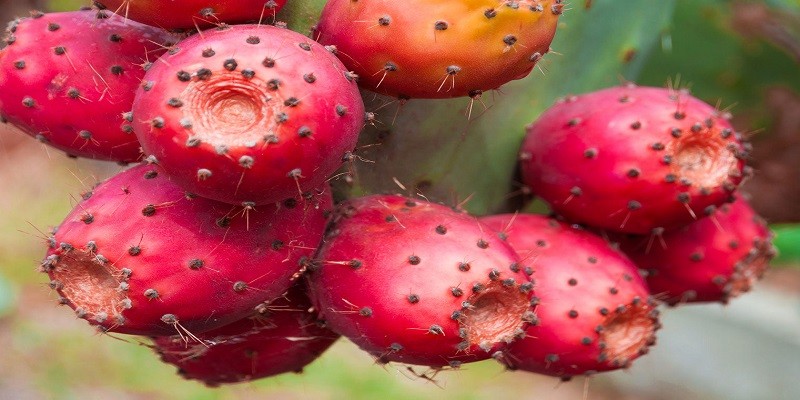Yes, you can eat cactus fruit while pregnant, but with caution. While generally considered safe when consumed in moderation as part of a balanced diet, there is limited research on its effects during pregnancy. It’s best to consult your healthcare provider before adding cactus fruit to your prenatal diet due to potential risks and individual health considerations.
Pregnancy is a time when women are particularly conscious about their diet, carefully considering the safety and nutritional value of everything they consume. Cactus fruit, also known as prickly pear or nopal, has gained popularity for its potential health benefits. However, its safety during pregnancy is a topic of concern for many expectant mothers. This article explores the pros and cons of eating cactus fruit while pregnant, providing evidence-based information to help make informed dietary choices.
What is Cactus Fruit?
Cactus fruit, scientifically known as Opuntia ficus-indica, is the edible fruit of the prickly pear cactus. It has a sweet, slightly tart flavor reminiscent of watermelon and strawberry. The fruit comes in various colors, including green, yellow, red, and purple. Rich in vitamins, minerals, and antioxidants, cactus fruit has been used in traditional medicine and cuisine for centuries, particularly in Mexico and the southwestern United States. Its potential health benefits have sparked interest in its consumption during pregnancy.
Nutritional Value of Cactus Fruit
| Nutritional Value | Details |
|---|---|
| Vitamins | High in vitamin C, contains vitamins B and K |
| Minerals | Good source of magnesium, potassium, and calcium |
| Fiber | Rich in dietary fiber |
| Antioxidants | Contains betalains and polyphenols |
| Calories | Low in calories |
| Hydration | High water content |
Risks of Eating Cactus Fruit During Pregnancy
| Risks | Details |
|---|---|
| Digestive Issues | May cause bloating, diarrhea, or nausea |
| Blood Sugar | Can affect blood sugar levels |
| Allergic Reactions | Possible in sensitive individuals |
| Limited Research | Lack of studies on pregnancy-specific effects |
| Pesticides | Potential exposure if not organic |
| Spines | Risk of injury if not properly prepared |
Safe Ways to Eating Cactus Fruit During Pregnancy
If you choose to eat cactus fruit during pregnancy, it’s important to do so safely. Always wash the fruit thoroughly to remove any pesticides or contaminants. Remove all spines and glochids carefully before consumption. Start with small amounts to test for any adverse reactions. Opt for ripe fruits and consider cooking or juicing to reduce potential digestive issues. It’s best to incorporate cactus fruit as part of a varied diet rather than consuming large quantities. Always consult with your healthcare provider before adding new foods to your pregnancy diet.
Alternatives to Cactus Fruit During Pregnancy
| Alternatives | Precautions |
|---|---|
| Berries | Wash thoroughly |
| Citrus fruits | Avoid if experiencing heartburn |
| Apples | Remove seeds and stems |
| Melons | Cut and store properly to avoid bacterial growth |
| Kiwi | Consume in moderation due to high vitamin C content |
Expert Tips
- “Moderation is key when consuming cactus fruit during pregnancy. Stick to small portions and observe any bodily reactions.”
- “If you’re unsure about eating cactus fruit, consider discussing alternatives with a registered dietitian to ensure you’re getting similar nutrients.”
- “Always choose ripe, fresh cactus fruits and prepare them properly to minimize any potential risks.”
FAQs
Is cactus fruit safe for all pregnant women?
While generally considered safe, cactus fruit may not be suitable for all pregnant women. Those with gestational diabetes should be cautious due to its potential effects on blood sugar. Women with allergies or sensitivities to certain fruits should also exercise caution. It’s always best to consult with your healthcare provider before adding new foods to your pregnancy diet.
Can cactus fruit help with pregnancy-related constipation?
Cactus fruit is high in fiber, which can potentially help alleviate pregnancy-related constipation. However, it’s important to introduce fiber-rich foods gradually and drink plenty of water. Some women may experience digestive discomfort when consuming cactus fruit, so it’s best to start with small amounts and monitor your body’s response.
Are there any specific benefits of eating cactus fruit during pregnancy?
Cactus fruit is rich in antioxidants, vitamins, and minerals that can support overall health during pregnancy. Its high vitamin C content may help with iron absorption, while its potassium content could aid in maintaining healthy blood pressure. However, these benefits can also be obtained from other fruits and a balanced diet.
How should I prepare cactus fruit to eat during pregnancy?
To safely prepare cactus fruit during pregnancy, first, wear thick gloves to protect your hands from spines. Wash the fruit thoroughly, then cut off both ends. Make a lengthwise incision and peel off the skin. Remove any remaining glochids (tiny, hair-like spines) by rubbing the fruit with a paper towel. Cut the fruit into pieces, removing seeds if desired.
Can eating cactus fruit cause premature labor?
There is no scientific evidence suggesting that eating cactus fruit can cause premature labor. However, due to limited research on its effects during pregnancy, it’s always best to consume it in moderation and consult with your healthcare provider, especially if you have any concerns about premature labor or other pregnancy complications.
Conclusion
While cactus fruit can be a nutritious addition to a pregnancy diet, it’s important to approach its consumption with caution. The fruit offers various vitamins, minerals, and antioxidants that can support overall health during pregnancy. However, potential risks such as digestive issues and limited research on its pregnancy-specific effects warrant careful consideration. Pregnant women should consult their healthcare providers before adding cactus fruit to their diet, especially those with pre-existing conditions or allergies. When consumed in moderation and prepared properly, cactus fruit can be part of a balanced pregnancy diet for many women.
Last Updated on July 25, 2024 by Marjorie R. Rogers, MA (English), Certified Consultant

